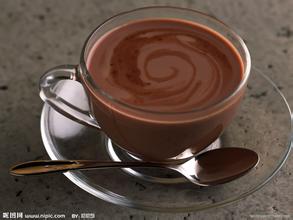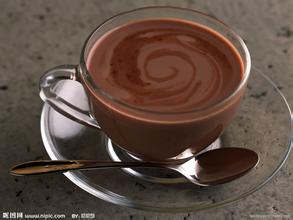Pure Jamaican Coffee Flavor and Taste introduction to Fine Coffee in Manor area
Columbus came to Jamaica in 1494, and in 1509 Spain declared Jamaica its colony and renamed it Santiago. Spain's slave policy towards the indigenous peoples led to the extinction of the Arawaks on the island as a result of war, disease and enslavement. To make up
Jamaica
Jamaica
As a labor force, Spain began to sell slaves from Africa to Jamaica since 1517, causing blacks to gradually become the dominant nation of Jamaica. Founded by the Spaniards in 1538, as the capital of Jamaica, the economy of Jamaica gradually prospered in the decades after 1872, but its social and cultural development was always suppressed by the colonial authorities. Especially during the Great Depression, all walks of life in Jamaica were very dissatisfied with the depressed social situation. In 1938, workers in Jamaica revolted. After that, the colonial authorities were forced to grant local autonomy. In 1944, universal suffrage was first held in Jamaica.
The "secret" of why Blue Mountain coffee tastes pure: their coffee trees are all on rugged hillsides, and the picking process is so difficult that non-local skilled women are simply unable to do it. It is very important to choose the right ripe coffee beans when picking. Immaturity or ripeness will affect the quality of the coffee. The picked coffee beans are shelled on the same day, and then let them ferment for 18 hours. After that, the coffee beans were cleaned and screened. After that
The drying process must be carried out on the cement floor or on a thick blanket until the humidity of the coffee beans drops to 12% 14%. And then store it in a special warehouse. Take it out and roast when needed, then grind it into powder. These procedures must be strictly controlled, otherwise, the earliest "Jamaica Blue Mountains", which refers to the coffee produced by "Warren Ford Farm" and "Silver Hill Farm", has the best quality; today's Jamaica Blue Mountain refers to coffee beans growing in the Blue Mountains area east of Kingston, the capital of Jamaica (with a height of more than 1000 meters). Now Mawei is the largest manor, its barrel is printed with M.B.C.F, and its products are often found in Taiwan. The quality control of the Blue Mountains in Jamaica is very strict, and the certification work is carried out by the government's "Coffee Industry Committee".
Coffee beans that generally grow at low elevations and other areas can only be called "Jamaican mountain beans" or "Jamaican waterwashed beans". Compared with the Jamaican Blue Mountains, they have a lot of flavor, but, these producing areas are twice the size of the real blue mountain areas, and the output accounts for 75% of the country's output, so when you buy Jamaican coffee, don't think you bought blue mountain coffee.
Because Jamaica Blue Mountain is so famous, there are fake Blue Mountain Coffee on the market, or simply called "Blue Mountain Coffee". It is basically a comprehensive product prepared by the store. there may not be a real Jamaican blue bean in it. Blue Mountain Coffee is the most superior coffee in the world, and the weather, geological structure and topography of Jamaica provide an ideal place. The ridge that runs through Jamaica extends to the eastern part of the island, with the Blue Mountains rising to more than 2100 meters. Cool weather, foggy, frequent precipitation, use this rich soil Rain Water to reconcile. Here, a mixed planting method is used to grow coffee trees to accompany banana trees and avocado trees on terraces. Some small estates are also planted. But even the largest landowners in the region are small-scale growers by international standards, many of whom are small landowners whose families have been working for two centuries. The coffee industry in Jamaica faces a series of problems, such as the impact of hurricanes, increased labor costs and difficult mechanization of terraces. It is difficult to rationalize planting on many small estates and farms

Important Notice :
前街咖啡 FrontStreet Coffee has moved to new addredd:
FrontStreet Coffee Address: 315,Donghua East Road,GuangZhou
Tel:020 38364473
- Prev

Introduction to the characteristics of fine coffee beans in the manor area of small-grain iron pickup coffee made in Yunnan, China
Panama is located in the isthmus of Panama in Central America, bordered by Colombia to the east, the Pacific Ocean to the south, the map of Panama to Costa Rica to the west and the Caribbean Sea to the north. The territory is S-shaped to connect North and South America, and the Panama Canal connects the Atlantic and Pacific oceans from north to south. It is known as the bridge of the world. [5] Panama has a land area of 75517 square kilometers.
- Next

Introduction to Fine Coffee in Ethiopian Coffee Variety producing area and Flavor Manor producing area
In February 1977, Lieutenant Colonel Mengistu Haier Maryam (MENGISTU HAILE MARIAM) launched a military coup and served as Chairman of the interim military Administrative Council and head of State. In 1979, the Ethiopian Labor people's Party Organization Committee, dominated by soldiers, was established to implement an one-party system. In 1984, the Ethiopian Workers' Party was formed according to the Soviet Communist Party model. Mengistu, September 1987
Related
- Detailed explanation of Jadeite planting Land in Panamanian Jadeite Manor introduction to the grading system of Jadeite competitive bidding, Red bid, Green bid and Rose Summer
- Story of Coffee planting in Brenka region of Costa Rica Stonehenge Manor anaerobic heavy honey treatment of flavor mouth
- What's on the barrel of Blue Mountain Coffee beans?
- Can American coffee also pull flowers? How to use hot American style to pull out a good-looking pattern?
- Can you make a cold extract with coffee beans? What is the right proportion for cold-extracted coffee formula?
- Indonesian PWN Gold Mandrine Coffee Origin Features Flavor How to Chong? Mandolin coffee is American.
- A brief introduction to the flavor characteristics of Brazilian yellow bourbon coffee beans
- What is the effect of different water quality on the flavor of cold-extracted coffee? What kind of water is best for brewing coffee?
- Why do you think of Rose Summer whenever you mention Panamanian coffee?
- Introduction to the characteristics of authentic blue mountain coffee bean producing areas? What is the CIB Coffee Authority in Jamaica?

